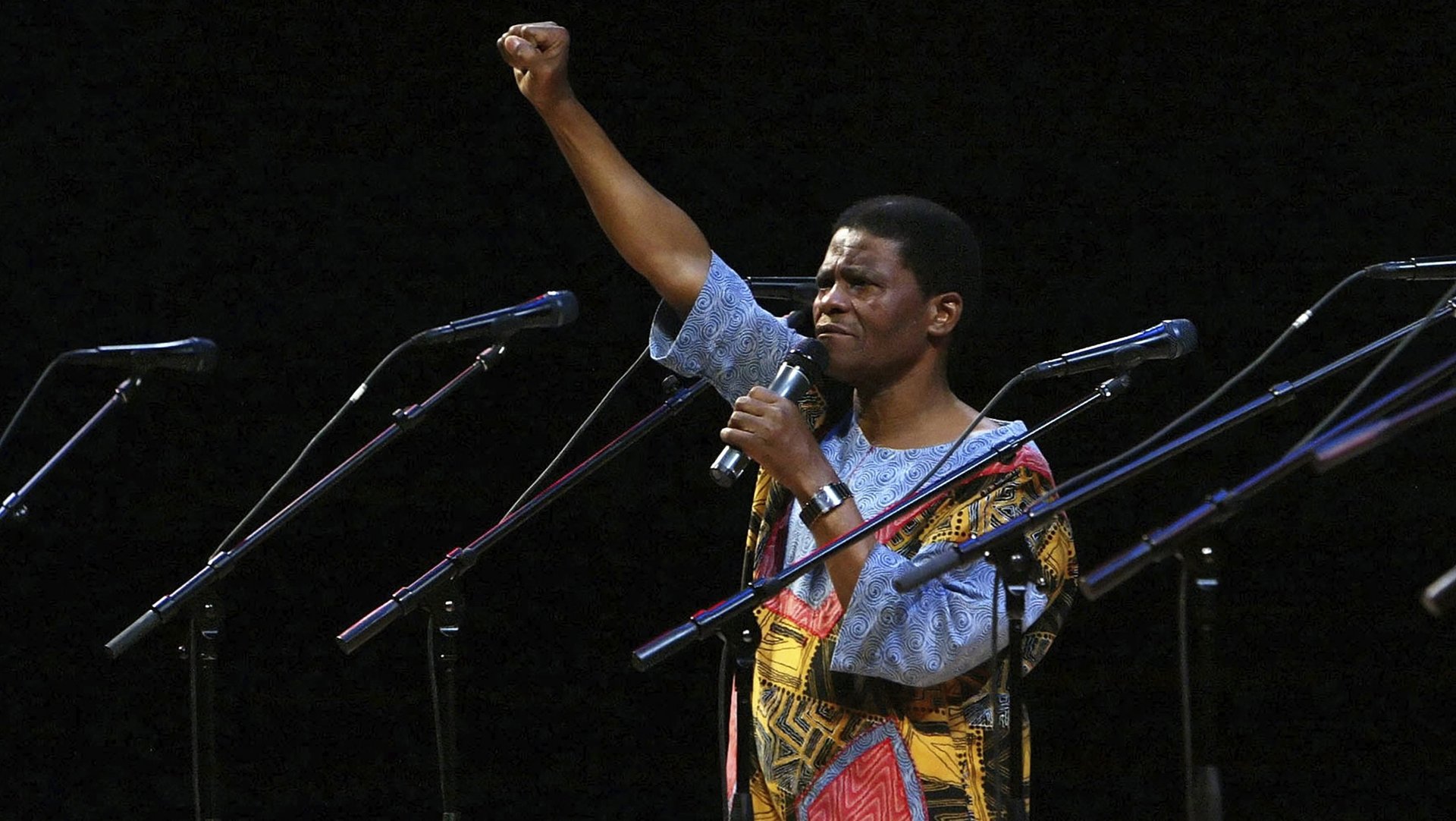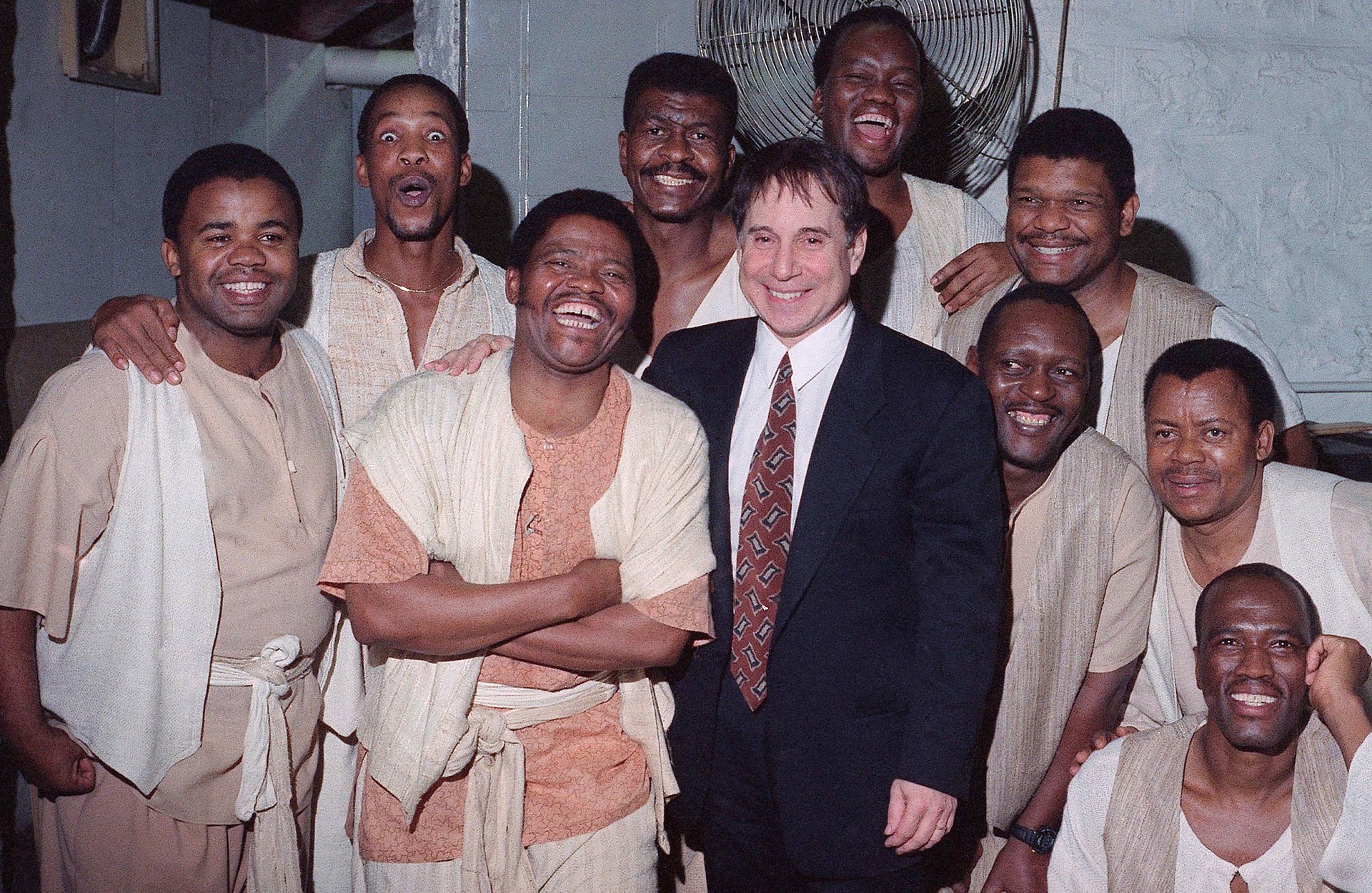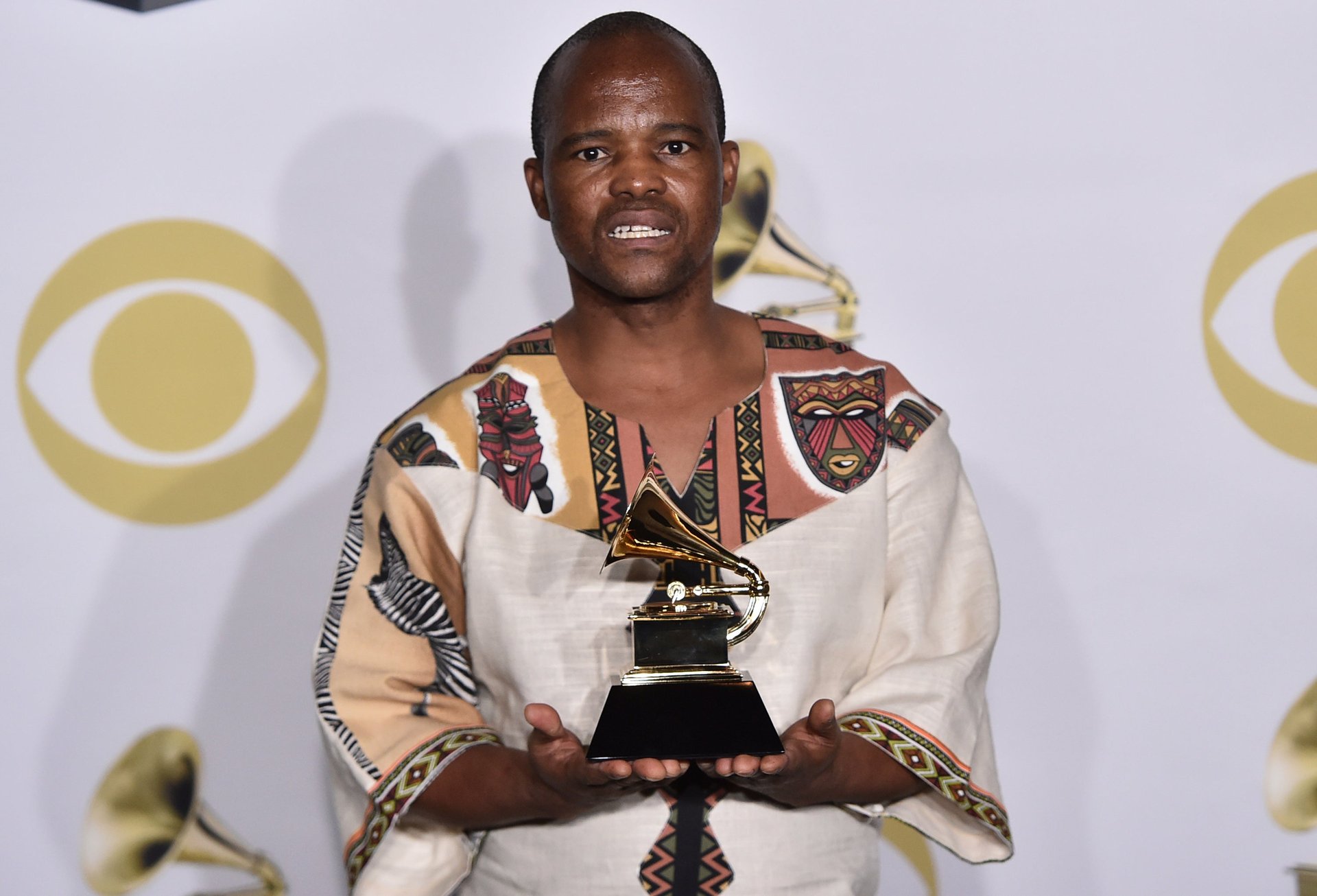Ladysmith Black Mambazo’s Joseph Shabalala brought traditional Zulu music to the world
South African legendary musician and founder of a choral group, Ladysmith Black Mambazo, Joseph Shabalala, who played a significant role in popularizing Zulu traditional music around the world died, Tuesday morning (February 11) at a hospital in Pretoria aged 78.


South African legendary musician and founder of a choral group, Ladysmith Black Mambazo, Joseph Shabalala, who played a significant role in popularizing Zulu traditional music around the world died, Tuesday morning (February 11) at a hospital in Pretoria aged 78.
Ladysmith Black Mambazo band manager Xolani Majozi confirmed Shabalala’s death.
The group, which is on a tour in the United States, took to Twitter to honour the late iconic musician. “We celebrate and honour your kind heart and your extraordinary life. Through your music and the millions who you came in contact with, you shall live forever,” reads part of the tweet.
Shabalala, who was born in a family of eight while living near the town of Ladysmith, South Africa, wanted to become an “educated person” but his dreams were shattered when his father died at the age of 12 forcing him to work at the family’s farm and later on at a factory.
Those days he established a local choral group dubbed Blacks in which he would sing with some of his friends. He then became the leader and main composer for the Blacks, fusing indigenous Zulu songs and dances with South African isicathamiya, an a capella tradition that was usually done along with soft shuffling feet style of dance.
The choral group was later renamed to Ladysmith Black Mambazo with Ladysmith-a name that represents their hometown while Black represented a strong black oxen and Mambazo-a Zulu word which means an axe.
Ladysmith Black Mambazo released an album called Amabutho in 1973 that later became one of Africa’s best selling album.
While several stars including Miriam Makeba and Hugh Masekela had already brought popular South African music to the world by infusing it with jazz, pop and other forms, Ladysmith’s sound has remained very close to the traditional choral stylings of their roots.
The group’s traditional sound and style really broke into global pop consciousness after they collaborated with veteran singer/songwriter Paul Simon in 1986 on his Graceland album which sold more than 16 million copies worldwide and won the 1987 Album of the Year Grammy award.

The group also collaborated with a number of legendary musicians including Zimbabwe’s Oliver Mutukudzi, who died last year, in a remake of his hit track Neria.
Ladysmith Black Mambazo was nominated 17 times for the Grammy awards and won five with the latest being for the Best World Music Album in 2017.
His health, which was deteriorating, forced him to retire from music in 2014 after performing at a memorial concert for Nelson Mandela, former South African president.

While four of his sons (and one grandson) continued his legacy within Ladysmith Black Mambazo, Shabalala continued to teach traditional choral music.
South African opposition party Economic Freedom Fighters said the southern African nation has lost a pioneer of traditional Zulu choral music. “As its founder, Shabalala, led Ladysmith Black Mambazo into prominence, the group has played a significant role in promoting social cohesion through the arts. Their music spoke to the realities of black cultural norms and traditions and was able to bring to light, the social conditions of black South Africans,” said EFF.
South African award-winning rapper Cassper Nyovest described Shabalala as an “African Giant”.
Sign up to the Quartz Africa Weekly Brief here for news and analysis on African business, tech and innovation in your inbox